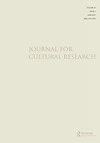从边缘到中心的家政工人:疫情政治中的抗议、机遇和威胁
IF 0.6
Q1 CULTURAL STUDIES
引用次数: 0
摘要
摘要(***Gendered Pandemic特别版)在印度,家政工人运动在疫情之前和期间都倡导自己和其他工人的权利。然而,在疫情期间,政治格局和工人之间的不团结程度发生了变化。尽管资源不断减少,政治环境充满敌意,成功的前景渺茫,但家政工人仍坚持抗议改善条件。我们认为,虽然家庭佣工在疫情之前的组织可以用标准的理论方法来解释,但疫情的爆发对这些相同的理论方法提出了挑战。印度的家政工人运动已经从疫情前基于机会的行动主义转变为基于威胁的集体行动。此外,对这些威胁的交叉分析表明,家政工人的抗议活动不仅受到如何在不断变化的政治领域建立联盟的战略考虑的驱动,还受到维护身份和要求纳入“工人”类别的需要的驱动,因为家政工人往往因性别和种姓偏见而被排除在“工人”之外。本文章由计算机程序翻译,如有差异,请以英文原文为准。
Domestic workers from margin to center: protest, opportunity and threat in pandemic politics
ABSTRACT (***Special Edition Gendered Pandemic) In India, domestic workers' movements advocated for their own and other workers’ rights both before and during the pandemic. Over the course of the pandemic, however, the political landscape and degree of disunity among workers changed. Despite dwindling resources and a hostile political environment that offered paltry prospects for success, domestic workers persisted in protesting for improved conditions. We argue that while domestic workers’ organising prior to the pandemic may be accounted for by standard theoretical approaches, the onset of the pandemic presents challenges to these same theoretical approaches. The domestic workers’ movement in India has transitioned from its pre-pandemic opportunity-based activism to what might be better characterised as threat-based collective action. Further, an intersectional analysis of these threats suggests that domestic worker protests are driven not only by strategic considerations about how to craft alliances in a shifting political field, but also by a need to assert an identity and to demand inclusion in the category ‘worker,’ from which domestic workers are often excluded by gender and caste bias.
求助全文
通过发布文献求助,成功后即可免费获取论文全文。
去求助
来源期刊

Journal for Cultural Research
CULTURAL STUDIES-
CiteScore
1.40
自引率
0.00%
发文量
23
期刊介绍:
JouJournal for Cultural Research is an international journal, based in Lancaster University"s Institute for Cultural Research. It is interested in essays concerned with the conjuncture between culture and the many domains and practices in relation to which it is usually defined, including, for example, media, politics, technology, economics, society, art and the sacred. Culture is no longer, if it ever was, singular. It denotes a shifting multiplicity of signifying practices and value systems that provide a potentially infinite resource of academic critique, investigation and ethnographic or market research into cultural difference, cultural autonomy, cultural emancipation and the cultural aspects of power.
 求助内容:
求助内容: 应助结果提醒方式:
应助结果提醒方式:


